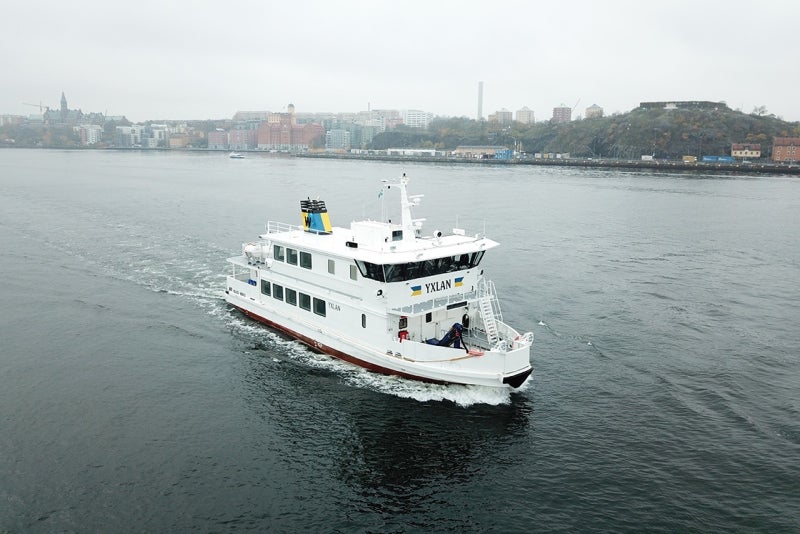
Sweden-based shipping line Waxholmsbolaget has launched a new hybrid ice-class passenger ferry that will serve the Stockholm archipelago.
The 27.5m vessel is powered by Danfoss Editron’s hybrid electric propulsion system that comprises two hybrid drivetrains with permanent magnet electric motors and generators.
The Danfoss system is half the size of the traditional diesel-electric propulsion system.
The compact and lightweight system is designed to reduce fuel and operations costs, as well as cut carbon dioxide (CO2) emissions and payback period.
Designed and built by Baltic Workboats, Waxholmsbolaget’s new ferry is capable of carrying up to 150 passengers.
The vessel is expected to help the city of Stockholm in Sweden to meet its goal of becoming a fossil-fuel-free city by 2040.

US Tariffs are shifting - will you react or anticipate?
Don’t let policy changes catch you off guard. Stay proactive with real-time data and expert analysis.
By GlobalDataIt will conduct a year-round operation and is specifically developed to run on ice up to 25cm thick.
The vessel is equipped with two diesel engines and a battery pack to provide clean power to propulsion. It will also include an exhaust cleaning elective catalyst reduction system to further minimise emissions.
In good weather conditions, the vessel can run on one diesel engine and the battery pack system, further reducing emissions.
Danfoss Editron project manager Kari Savolainen said: “As countries adopt regulations to advance towards carbon neutrality, we can expect demand for such hybrid electric solutions to grow rapidly.
“Electrifying marine transport is set to become a key trend and Scandinavian countries are leading the way.”
The adoption of the International Maritime Organization’s strategy to reduce at least 50% of greenhouse gas emissions from the global shipping sector by 2050 has driven the maritime industry to take up measures to decarbonise the sector.
In 2015, Swedish Shipowners’ Association made a commitment to achieve zero-carbon shipping by 2050.



